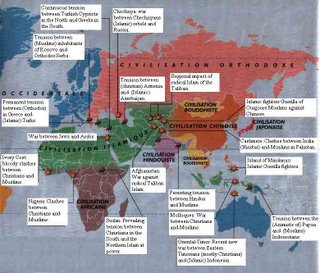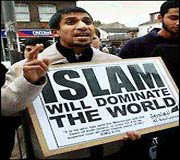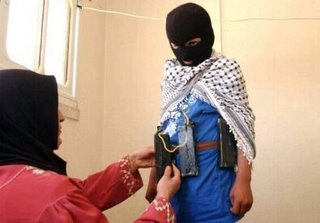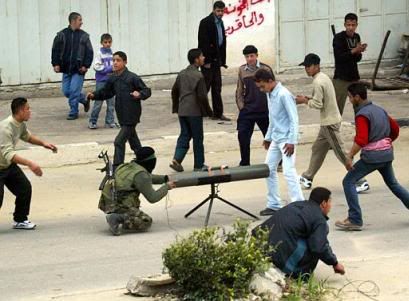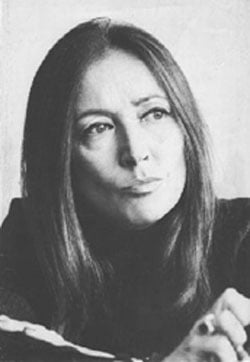
Hundreds of Black Mauritanian students gathered at the University of Nouakchott Tuesday to express their outrage against what they call a “comprehensive Arabization” of Mauritania. The sit-in follows several demonstrations triggered by speeches, delivered by the Prime Minister and Minister of Culture. The students condemn a move to promote Arabic as a national language.
The atmosphere was tense on Tuesday at the University of Nouakchott. Under heavy police surveillance, Black Mauritanian students gathered, once again, to show their indignation over speeches given by the country’s Prime Minister Mohamed Ould Moulaye Laghdaf and Culture Minister Cissé Mint Boide on March 1, a day set aside for the promotion of the Arabic language.
Strong statements calling for the primacy of the Arabic language in strategic areas including television, education, and administration, while reducing French and other national languages like Fulani, Wolof and Soninke to sheer Vernacular. “Everything is Arabized!”, hurled Yacouba Diakite, secretary general of the National Union of Mauritanian Students (SNEM), as he condemned the Arabic language broadcasts on Mauritanian television. He describes the speeches delivered by the two ministers as discriminatory and “disastrous” as they do not take into account the country’s cultural, ethnic and linguistic diversity.
see also • 254 Sudanese Liberated from Slavery • Sojourner Truth: Abolishionist and proponent of women’s rights • US: Descendants of Slaves and Slaveholders dare… • All articles related to Slavery | ||
This latest protest follows an initial demonstration that took place Wednesday, March 24. Mainly represented by members of the SNEM and bilingual clubs of the University of Nouakchott, the protesters hit the streets with two main requests : An apology from the Prime Minister who, by imposing Arabic as the sole administrative instrument of exchange and work, has given rise to a sense of cultural oppression among Black Mauritanians; And the resignation of the Minister of Youth and Culture, who, according Ndiaye Sarr Kane, spokesman for the demonstration, is incapable of representing Mauritania’s multiculturalism. According to her, part of the minister’s speech which read: “The national languages are obstacles to the emergence of the Arabic language,” were shocking.
The demonstration quickly turned violent as Arab students chanting “yes to Arabization!” clashed with the Black Mauritanians. The violence led to the arrest of several students by the police. The number of students arrested range between 4, according to Atlas Vista, and 8, according to RFI. Those arrested were released 24 hours later without being charged.
A multicultural country?
These multiple demonstrations has incurred strong reactions from the prime minister, who remains determined to justify his remarks, in an interview accorded to three journalists from the country’s private media and published on the ruling party’s (l’Union des forces de progress) website.
Interpreting his speech, according to him, requires placing it in its appropriate context. He further explains that the speech was made on the 1st of March, a day commemorated by 22 countries as a day of the Arabic language, following a decision by the Arab League, of which Mauritania has been a member since 1973. He insists that it was not unusual to place the language on a pedestal that day, he however denies denigrating the other national languages, which according to him, remain an integral part of the country. A country he describes as having both strong African and Arab roots.
Analysts believe that this is an essential fight for the Fulani, Wolof, Soninke and other black-skinned groups, who account for about a third of the country’s population, as the Arabic language consolidates the position of the Arab-Berber majority who wield more political and economic power, and who have often been accused of enslaving the minority Black populations. Slavery which is still practiced by the Arab-Berber populations was abolished three times in Mauritania in the last century alone. In 2002, Action for Change (AC), a political party which campaigned for greater rights for blacks and the descendants of slaves, was banned by the government.
Symptomatic of a deep malaise, the question of identity has rocked the Mauritanian landscape since 1966; a year that saw a massive mobilization of Black students in Nouakchott to ask for the suppression of a law that sought to make the use Arabic language in secondary education compulsory. A cultural constraint for the Black minority, natives of the region of the Senegal River Basin, the issue has remained latent for nearly half a century.
http://en.afrik.com/article17279.html
Tags: Africa, Apartheid, Arab, Arab apartheid, Arab racism, Arab slavery, Arabism, Arabization, Blacks, human rights, Islamic Apartheid, Mauritania, oppression, pan Arabism, Arabization, panarabism, racism, Slavery

